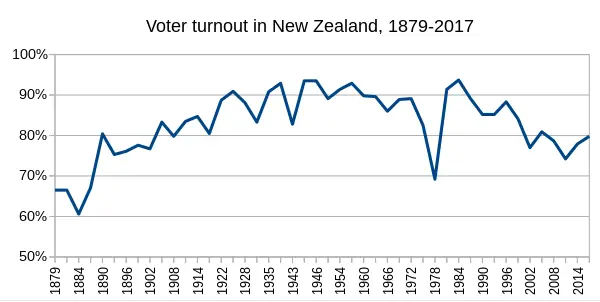Is voting compulsory in New Zealand? really voting isn’t compulsory. Unlike some countries, such as Australia, citizens of New Zealand are not required by law to vote in elections. However, voter turnout in New Zealand has historically been high, with around 79% of eligible voters participating in the 2020 general election.
Voting is a fundamental right and responsibility of citizens in any democratic society. It allows individuals to have a say in the decisions that affect their lives and the direction of their country. In New Zealand, voting is compulsory for all eligible citizens. This means that if you are a citizen over the age of 18, you are legally required to vote in all general elections and referendums.

The history of compulsory voting in New Zealand dates back to the late 19th century. The idea was first proposed in 1892 by the Reform Party, and in 1896, the Electoral Act was passed making voting compulsory for all men over the age of 21. Women were given the right to vote in 1893 but were not subject to the same voting requirements as men until 1919. Today, both men and women are required to vote in all general elections and referendums.
The reason for this high voter turnout can be attributed to a number of factors. One is the ease of voting in New Zealand. The country has a system of advance voting, which allows citizens to cast their vote at a designated polling station before election day. This means that even if someone is unavailable on election day, they can still vote. Additionally, New Zealand has a system of postal voting, which allows citizens to vote by mail. This means that even if someone is unable to physically attend a polling station, they can still cast their vote.
Another reason for the high voter turnout in New Zealand is the country’s culture of civic engagement. New Zealand has a strong tradition of democracy, and citizens are encouraged to participate in the political process. The government and political parties also make a concerted effort to engage with voters and make voting accessible to all.
Despite the fact that voting is not compulsory in New Zealand, there are still some penalties in place for those who do not vote. For example, if someone fails to vote in an election, they may be fined up to $20. However, these fines are rarely enforced, and the government primarily uses them as a way to encourage voter turnout.
The issue of compulsory voting in New Zealand has been debated in the past. Some argue that making voting compulsory would increase voter turnout, as more citizens would feel compelled to participate in the political process. Others argue that compulsory voting would be an infringement on individual rights and that citizens should have the freedom to choose whether or not to vote.
It is worth noting that there is a significant difference between voter turnout and voter registration in New Zealand. Voter registration is mandatory, so all eligible citizens must register to vote, but it does not mean they must vote.
One of the main arguments for compulsory voting is that it would increase voter turnout. This would mean that more citizens would have a say in the political process, which would make the government more representative of the population as a whole. Additionally, with higher voter turnout, politicians would be more likely to pay attention to the concerns of a wider range of citizens, rather than just catering to the interests of a small, vocal minority.

On the other hand, opponents of compulsory voting argue that it would be an infringement on individual rights. They argue that citizens should have the freedom to choose whether or not to vote, and that forcing them to vote would be a violation of their autonomy. Additionally, some argue that compulsory voting would not necessarily lead to increased voter turnout and that it would be more effective to focus on increasing voter engagement and education.
Overall, voting in New Zealand is not compulsory, but voter turnout is typically high. The country has a system of advanced voting and postal voting, which makes voting accessible to all. Additionally, New Zealand has a strong tradition of civic engagement, which encourages citizens to participate in the political process. While there have been debates about compulsory voting in the past, the government has chosen to focus on increasing voter engagement and education, rather than making voting compulsory.





